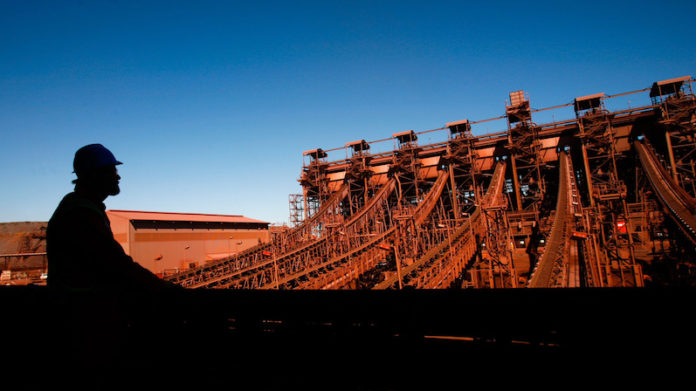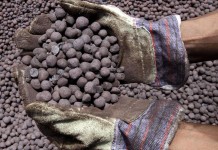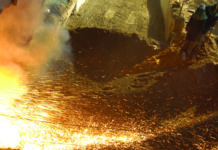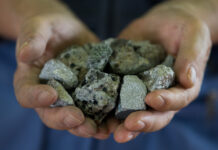
KUMBA Iron Ore is set to report an increase in interim headline earnings of as much as 182% year on year, but it could have been even better were it not for logjams at South Africa’s Saldanha port.
The 70%-owned Anglo American company said in a trading statement today that headline interim earnings for the period ended June 30 would be between R22.76bn and R23.69bn which compares to R8.4bn for the six months in the 2020 financial year.
This was owing to an average export iron ore price of $220 per dry metric ton (dmt) which was “well above” the average benchmark price of $163/t or $166 per dmt, the group said. This reflected “the high quality of Kumba’s iron ore,” it added.
Iron ore production increased by 12% to 20.4 million tons (Mt) and yet there was frustration because the operational improvement wasn’t fully reflected in sales.
“Our operations performed well and production increased by 12%, while sales increased by 3%, reflecting the impact of rail constraints and periods of severe weather at Saldanha Port,” said Themba Mkhwanazi, CEO of Kumba Iron Ore.
As a result, the group has downgraded its full year sales guidance by one million tons to between 39Mt and 40Mt. It has maintained production guidance at between 40Mt and 41Mt. The group will continue to build up stock at the port, it said.
Total sales were 3% higher at 19.5Mt on the back of a 5% increase in export sales to 19.4Mt, partly offset by a 300,000 ton decrease in domestic off-take to 100,000 tons. Sales in the second quarter of the financial year increased by 12% to 9.2Mt.
Kumba said basic earnings for the period were expected to be between R22,78bn and R23,7bn, an increase of between 171% and 182% from the comparative period. Basic earnings per share are expected to be between R71.01 and R73.91, an increase of between 171% and 182%, it added.
Transnet
Transnet, the state-owned freight and logistics company, has reported several derailments this year. Earlier this month, it declared that “things have to change”, adding that it was running an investigation to ascertain if sabotage by contractors might be the cause.
In addition to the low rail utilisation rate, the company has also reported low turnover at its various ports, partly owing to Covid-19 related absenteeism.
The problems extend to coal and manganese exports with Exxaro Resources and South32 criticising Transnet for its ability to resolve the problems. “TFR’s (Transnet Freight Rail’s) poor performance on domestic and export flows is most concerning,” said Exxaro in June.
- Sign-up for our free daily news alert here











